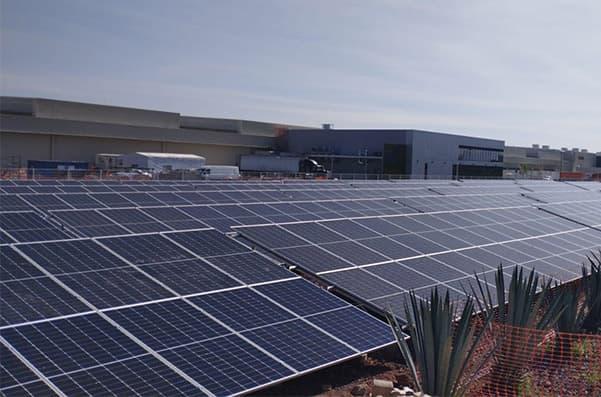How Many Solar Panels Are Needed to Power a Typical Home Efficiently?

Factors Influencing the Number of Solar Panels Required
Energy Consumption of a Typical Home
The energy consumption of a typical home is a crucial factor in determining the number of solar panels needed. On average, a household in the United States consumes about 877 kWh per month. This figure can vary significantly based on factors such as the size of the home, the number of occupants, and energy-efficient appliances. Understanding your household's energy needs is the first step in assessing how many solar panels you will require.
Solar Panel Efficiency and Output
Solar panel efficiency refers to how well a panel converts sunlight into usable electricity. The efficiency of solar panels has improved over the years, with modern panels achieving efficiencies greater than 20%. For instance, SHENZHEN SHINE SOLAR CO., LTD produces high-efficiency Monocrystalline PERC solar cells with cell efficiencies >23%. The output of a solar panel is also influenced by its wattage rating, which indicates the power it can produce under ideal conditions. Selecting high-efficiency panels can reduce the number needed to meet your energy demands.
Geographic Location and Sunlight Exposure
Geographic location plays a significant role in determining sunlight exposure, which directly impacts solar panel performance. Homes located in areas with abundant sunshine will require fewer panels compared to those in regions with less sunlight. Factors such as shading from trees or buildings and seasonal variations also affect sunlight exposure. It is essential to assess these elements when calculating how many solar panels are necessary for efficient home power supply.
Calculating the Number of Solar Panels for a Home

Estimating Household Energy Needs
To estimate household energy needs, start by examining past electricity bills to determine average monthly consumption in kilowatt-hours (kWh). This information helps establish a baseline for how much energy your solar system needs to generate. It's also important to consider any future changes that might increase or decrease energy usage, such as adding new appliances or implementing energy-saving measures.
Determining Solar Panel Requirements
Once you have an estimate of your household's energy needs, you can calculate the number of solar panels required by considering their efficiency and output. For example, if your home uses 900 kWh per month and you choose panels that produce 300 watts each under optimal conditions, you'll need approximately 25-30 panels depending on local sunlight exposure and panel efficiency. SHENZHEN SHINE SOLAR CO., LTD offers customizable options like frameless solar panels capable of withstanding heavy snow load up to 6000 pa and wind loads up to 3600 pa, making them suitable for various applications including residential rooftop systems.
By analyzing these factors—energy consumption, panel efficiency, geographic location—and utilizing products from reputable companies like SHENZHEN SHINE SOLAR CO., LTD, homeowners can effectively determine the appropriate number of solar panels needed to efficiently power their homes.
Practical Considerations for Installing Solar Panels
Roof Space and Structural Support
The available roof space and its structural support are critical when planning a solar panel installation. The size and orientation of your roof will determine how many panels can be installed. A south-facing roof is ideal for maximum sunlight exposure, but east or west-facing roofs can also be effective. It's essential to ensure that your roof can support the weight of the solar panels and any additional equipment required. SHENZHEN SHINE SOLAR CO., LTD's frameless solar panels are capable of withstanding heavy snow load up to 6000 pa and wind loads up to 3600 pa, making them suitable for various applications including residential rooftop systems.
Budget and Financial Incentives
Budget constraints and available financial incentives play a significant role in deciding the scale of your solar panel installation. The initial cost of purchasing and installing solar panels can be substantial, but there are various incentives available to reduce these costs. Federal tax credits, state rebates, and local utility incentives can significantly lower the upfront investment. Additionally, financing options such as solar loans or leases can make solar energy more accessible. It's important to research these opportunities thoroughly to maximize savings.
Long-term Benefits of Solar Panel Installation
Environmental Impact and Sustainability
Installing solar panels offers considerable environmental benefits by reducing reliance on fossil fuels and lowering greenhouse gas emissions. Solar energy is a clean, renewable resource that contributes to sustainability efforts by decreasing pollution levels and conserving natural resources. The International Energy Agency emphasizes that "the development of affordable, inexhaustible and clean solar energy technologies will have huge longer-term benefits" by enhancing energy security, reducing pollution, and mitigating global warming.
Economic Advantages Over Time
While the initial investment in solar panels may seem high, the long-term economic advantages are significant. Homeowners can benefit from reduced electricity bills as solar panels generate free electricity from sunlight. Over time, these savings can offset the initial costs of installation. Furthermore, as utility rates continue to rise, generating your own power becomes increasingly cost-effective. SHENZHEN SHINE SOLAR CO., LTD ensures its products with a 25-year warranty on PV modules, providing peace of mind regarding long-term reliability and performance.
Investing in solar energy not only provides environmental benefits but also offers substantial financial returns over time. By considering practical factors such as roof space, structural support, budget constraints, and available incentives, homeowners can make informed decisions about their solar panel installations. Collaborating with reputable companies like SHENZHEN SHINE SOLAR CO., LTD, which offers high-efficiency products with robust warranties, further enhances the value proposition of transitioning to renewable energy sources for powering homes efficiently.
https://www.shinesolartech.com
- Art
- Causes
- Crafts
- Dance
- Drinks
- Film
- Fitness
- Food
- Juegos
- Gardening
- Health
- Home
- Literature
- Music
- Networking
- Other
- Party
- Religion
- Shopping
- Sports
- Theater
- Wellness


